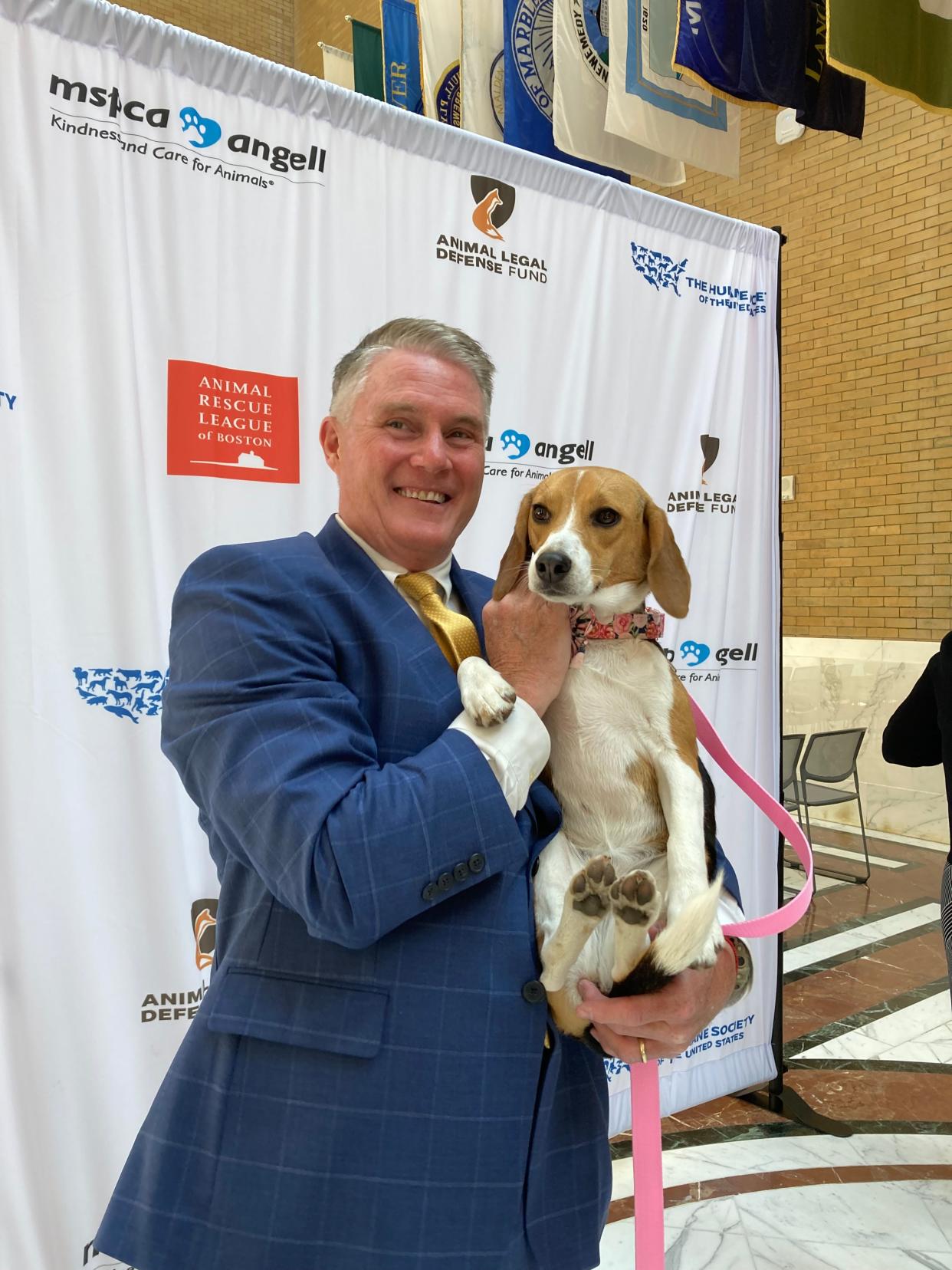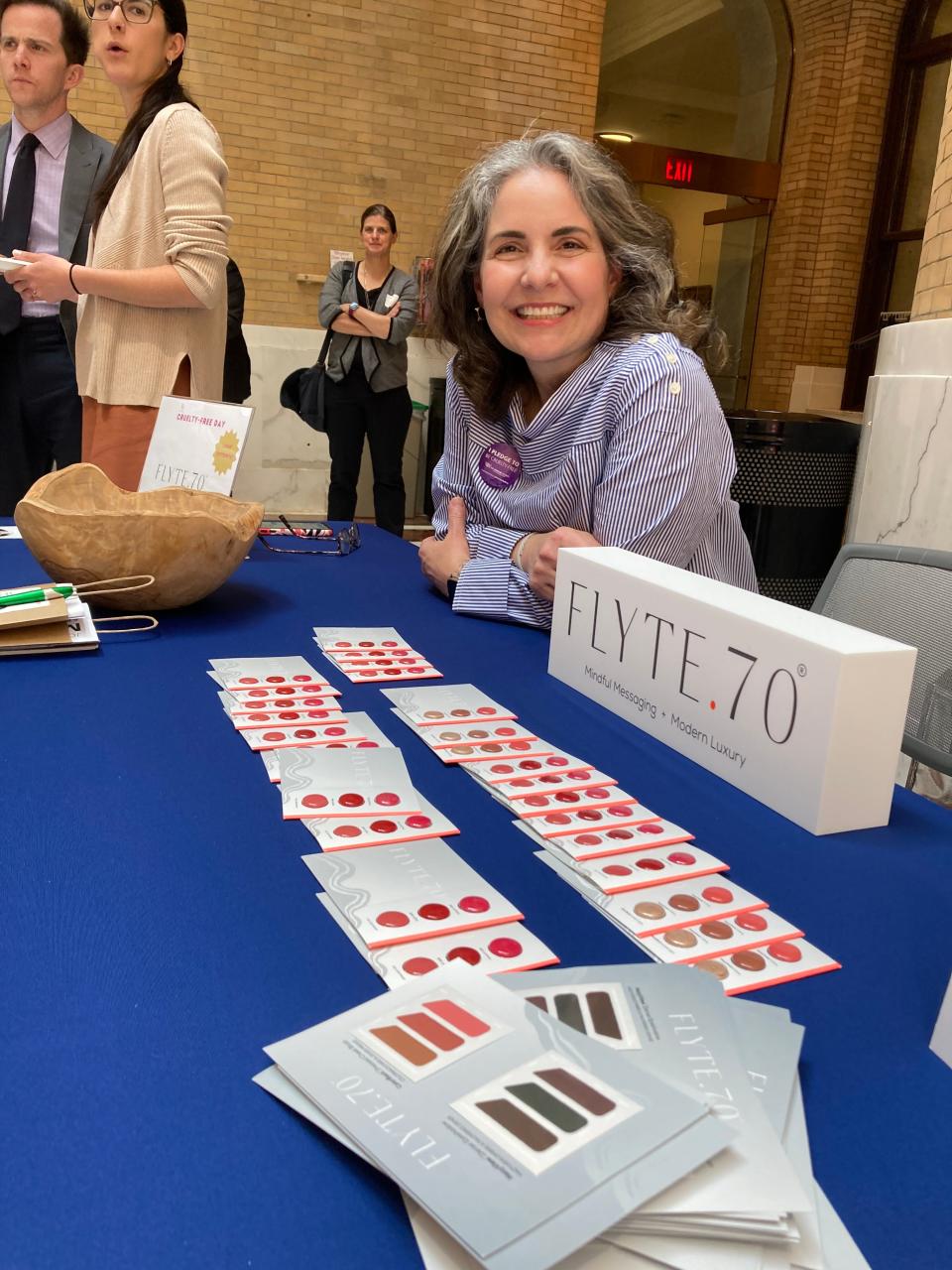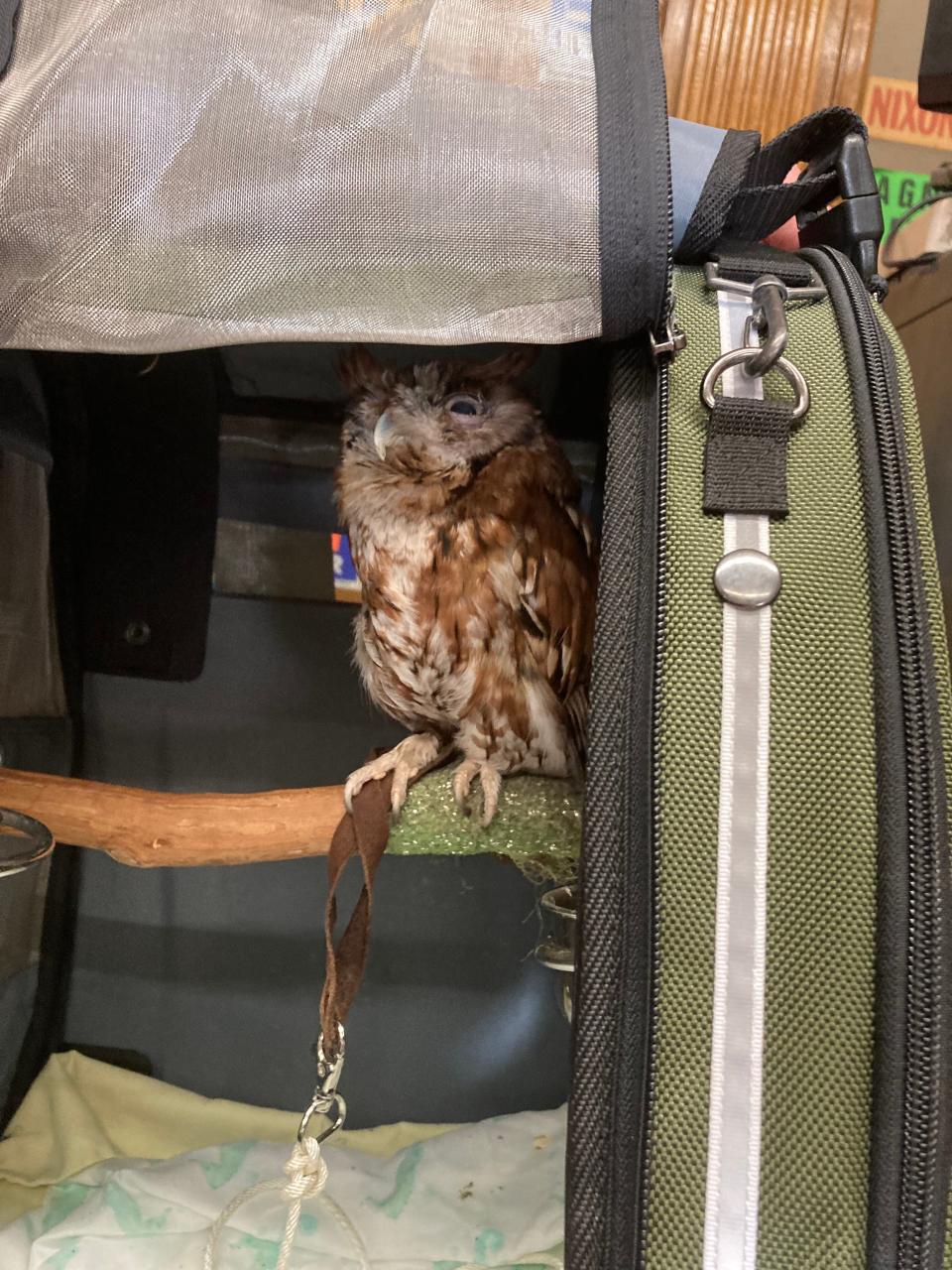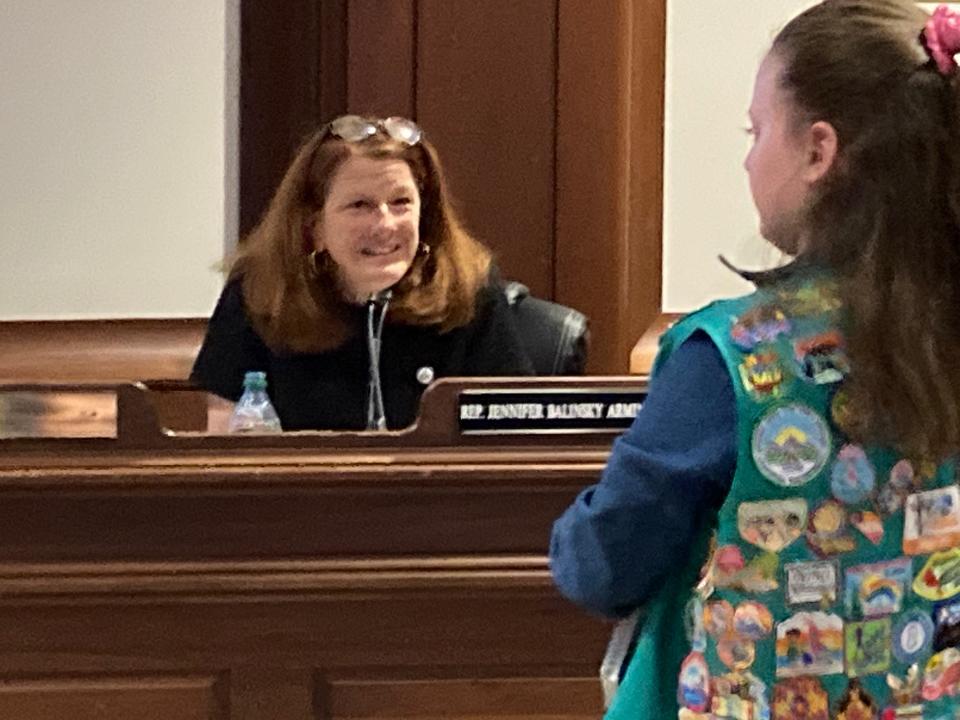Mass. legislators consider animal-friendly measures

- Oops!Something went wrong.Please try again later.
- Oops!Something went wrong.Please try again later.
BOSTON - Animal welfare issues were front and center at the Statehouse Wednesday as legislators heard from animal advocates promoting cruelty-free testing of household products while colleagues grappled with regulations governing pesticide and rodenticide use in the Bay State.
It was a busy day on Beacon Hill.
In the morning, legislators attended a celebration of the Beagle Freedom Law, legislation signed by former Gov. Charlie Baker last year. The measure requires testing laboratories that use animals to offer them up for adoption once their service is no longer required. It was put forward by Rep. Michelle DuBois, D-Brockton, and Sen. Bruce Tarr, R-Gloucester.

The morning celebration was also a time for legislators to consider co-sponsoring a bill put forward by Rep. Jack Patrick Lewis, D-Framingham, that would promote alternative means of product testing, when available, to limit the use of animals.
“Animal issues bring people together,” Lewis said, noting that his bill has 48 co-sponsors, from the state’s most conservative lawmakers to the most progressive. They have all signed on to promote cruelty-free products. “With more and more states passing similar legislation, I hope Massachusetts will be the next in line.”
Lewis touted a life-sciences company in his district, MatTek, a tissue-engineering company.
“The in vitro science allows us to grow human tissue to replace animals used in testing products,” said Alex Armento. The generated human tissue approximates skin, eyes and gastrointestinal tissue, Armento said, adding it costs less than procuring and caring for animals used for product testing while better predicting the effect substances can have on human tissue.
To remind legislators what was at stake, there were special appearances by a rescue beagle, Moira Rose, as well as a rescue screech owl, Loki.

Moira Rose was one of almost 4,000 beagles rescued from Envigo, a Virginia breeding facility that provides dogs to laboratories. Once released from the facility, the dogs were transported to shelters throughout the country with more than 200 coming to seven shelters in Massachusetts, where they were evaluated, fostered and adopted to loving families.
Laura Hagen, with the U.S. Humane Society, said animal testing is unreliable as a predictor of human reactions to substances, and urged Massachusetts to move away from animal testing. A party to the rescue efforts that saved Moira Rose, Hagen said some 60,000 dogs are used each year in testing products.
In the afternoon, the Joint Committee on Environment and Natural Resources was soliciting testimony on the use and regulation of pesticides and rodenticides.
High school students speak
Residents looking to curtail the use of pesticides included Wellesley high school students Kavin Shah, 15, and Jack Burkhead, 14, and Ava Toomey, 11, of Billerica. The older students became impassioned in their quest to ban the use of pesticides on school grounds through the research they did for a middle school project.
“The use of pesticides harms the land, people and children,” Shah said.
“There are harmful chemicals in pesticides,” Burkhead said.
They noted that 75% of Americans use pesticides on their lawns and suggested that the exposure to the chemicals causes irreparable harm to humans.
“There are safe, organic alternatives to the synthetic chemicals in pesticides,” they said, sharing the podium and microphone as they testified.
Toomey, who told the legislators she was using her voice to call attention to the harm caused by pesticides, requested that legislators use their voice to better regulate the chemicals in Massachusetts.

Not all those who attended the afternoon hearing spoke against pesticide use. Members of the New England Pesticide Management Association reminded legislators that the chemicals used by professionals in pest control have all been vetted by the federal government.
“Don’t step backward on pest management at schools,” said Ted Brayton, a spokesman for the organization.
Pesticides meet with state, federal approval
Brayton, along with David Flynn, the president of the association, said pest control professionals take pride in protecting the public health with products that have been approved by the federal Environmental Protection Agency and the Massachusetts Department of Agricultural Resources.
Legislators also heard testimony on the unintended consequences of the use of rodenticides by communities seeking to address rat populations in their communities.
Rat poisons used are anti-coagulants that sicken and kill rodents. However, when the pests are eaten by other animals - birds of prey like eagles, hawks and owls - the poisons affect them as well, causing them to bleed to death.
Cecily Miller of Cambridge told the committee that while the poison is contained in bait boxes, the animals that eat the bait leave the small black boxes, sicken and die. They are considered easy pickings by skunks, foxes, coyotes, possums and birds of prey. Even pets that eat rodents, cats and dogs, can be affected.
The bald eagle that was beloved for years in Arlington, MK, died in March, believed to have ingested rat poison.
Rep. Sean Garballey, D-Arlington, requested the committee favor a bill that would allow his city to ban the use of rodenticides.
“At the memorial for MK, 400 residents showed up on the steps of City Hall to demand the city do better,” Garballey said. Residents had come to love MK, he added. He said four owls have also died due to rodenticides in the past few months.
“We have banned other products that are harmful,” Garballey said. “There are other products that can be used to control rodent populations.”
No one, he said, wants rodents in their communities, but residents do not want to kill bald eagles or a community’s owl population. One speaker noted that it is ironic that the natural means of controlling rodent populations is the most harmed by the poisons used - the raptors that prey on them.
This article originally appeared on Telegram & Gazette: Mass. legislators consider cruelty-free testing, pesticides, rat poison

